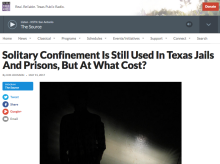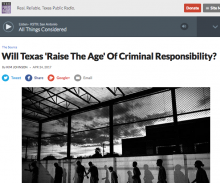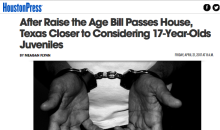Solitary Confinement Is Still Used In Texas Jails And Prisons, But At What Cost?
Solitary confinement, administrative segregation, seclusion, disciplinary separation and lockdown are a few of the names for isolating a prisoner in a separate cell. Officials say administrative segregation or "ad seg," is necessary for offenders who require maximum security to ensure the safety of staff, other offenders and the security of the institution.









